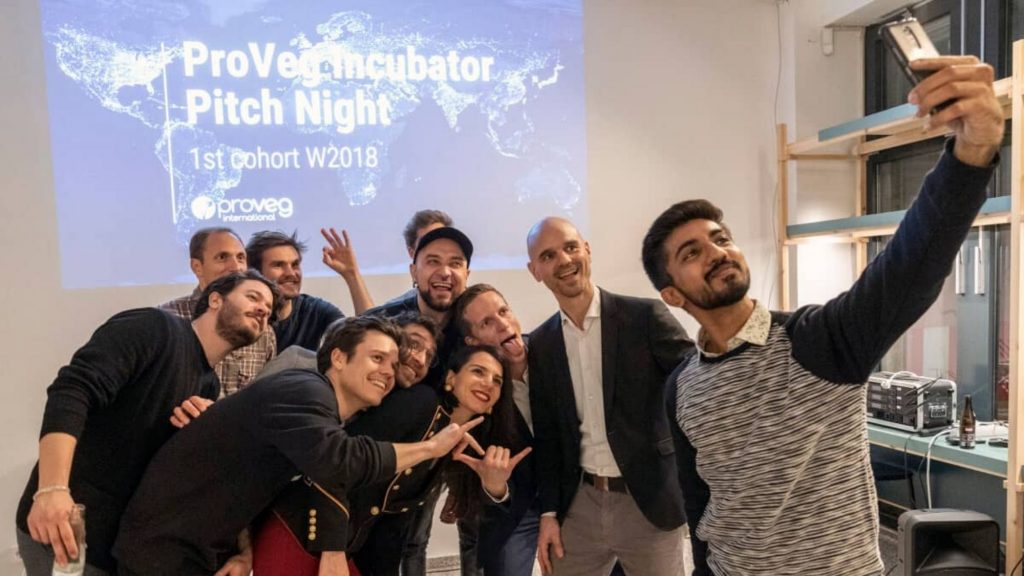We all have them. Those apps we open without thinking. Not because we need anything in particular, but because they feel… safe, in some…
Wanted: Start-ups with egg, seafood and chicken options

The ProVeg Incubator, the world’s first and leading impact-driven alt-protein accelerator, is aiming to fill food tech’s most pressing white spaces (market gaps) by recruiting top-tier innovators for its next cohort of start-ups.
Pioneering founders who are developing plant-based, fermented, and cultured alternatives to animal-based products and ingredients can apply now for the ninth edition of the ProVeg Incubator programme.
According to ProVeg’s consumer survey, seafood alternatives, egg alternatives, plant-based cheese, and ready meals represent some of the biggest white spaces in food tech.
The ProVeg Incubator, based in Berlin, Germany, is particularly interested in receiving applications from startups developing egg, seafood, and chicken alternatives, as well as ingredients and technologies that can help substitute animal-derived staple products on a mass scale.
Applications are being accepted on a rolling basis until the final deadline, on Sunday, 31 July. The programme is open to startups from anywhere in the world and will be hosted online, kicking off at the end of September. Interested founders should apply here.
Startups that join the ProVeg Incubator are supported with a tailor-made accelerator programme, one-on-one expert mentoring, access to the Incubator’s extensive networks of industry contacts, and up to €250 000 (about $261 000) in funding and in-kind services.
Since its launch in late 2018, the ProVeg Incubator has supported over 60 startups from around the world, including Remilk, Better Nature, Vly Foods, Bosque Foods, Haofood, Omni, Kern Tec, Greenwise, Mushlabs, Formo, Hooked, the Live Green Company, and the Nu Company.
ProVeg drives a global movement
Collectively, the ProVeg Incubator’s alumni have raised more than €230 million, with products stocked in over 15 000 stores worldwide.
Albrecht Wolfmeyer, head of the ProVeg Incubator, said: “At Proveg, we strive to maximise our long-term impact to achieve our mission of reducing the consumption of animals by 50% by 2040. Our work is informed by the principles of effective altruism – using limited resources to do the most good.
“This approach is also the foundation of our impact strategy at the ProVeg Incubator. We would therefore like to see applications from startups that are working on plant-based, fungi-based, and cultured meat and seafood alternatives, using and combining different types of fermentation, precision fermentation and cellular agriculture.”

Antje Räuscher, senior innovation and partnership manager at the Incubator, said: “Apart from our comprehensive programme and services, the ProVeg Incubator offers access to a unique expert network that is unrivalled anywhere else in the world. We connect startup teams with mentors, corporate partners, and investors, from Europe to Asia to the Americas.
“In addition, the ProVeg Incubator brings impact-driven food-tech founders together into a community that provides invaluable learning experiences and opportunities for growth. This can truly make all the difference on an entrepreneurial journey.”
Aviv Wolff, founder and chief executive of Remilk, said: “A ProVeg alumnus is privileged to receive a ride through the entrepreneurial sphere at the highest speed. The lessons learned and experience gained are invaluable, thanks to the engaging and professional
ProVeg Incubator team.”
Emil Wasteson, co-founder of Hooked, said: “Hooked’s experience with the ProVeg Incubator exceeded expectations on so many levels. Their focus on mission and making a positive change in the world, combined with great mentors, workshops, and exchanges with other founders, really helped us to improve and scale our business.”
As part of the global food awareness organisation ProVeg International, the Incubator is committed to the mission of reducing the consumption of animals by 50% by the year 2040.
ALSO READ: Start-ups can now apply for next B2B SaaS accelerator

